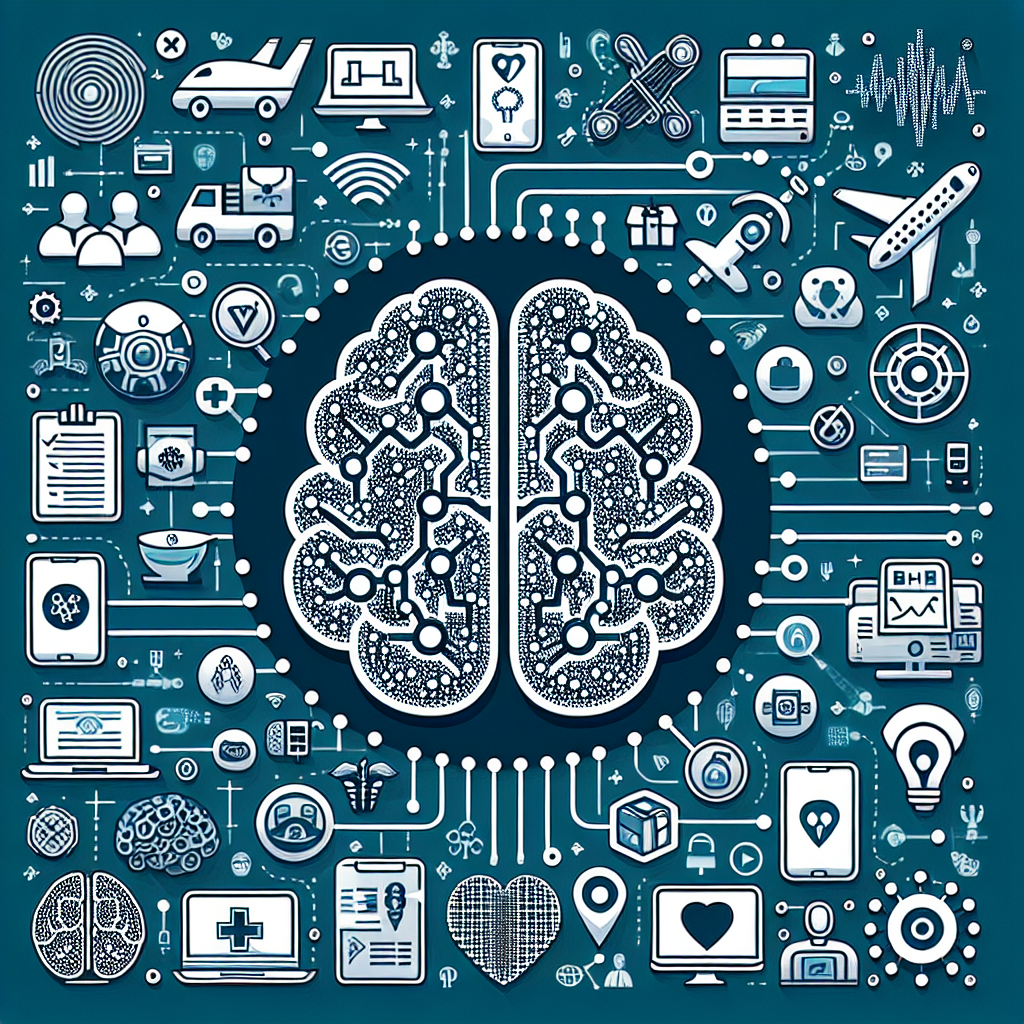Artificial General Intelligence (AGI) is an emerging technology that has the potential to revolutionize various industries and sectors. AGI refers to machines that have the ability to understand, learn, and apply knowledge across a wide range of tasks, similar to human intelligence. Unlike Artificial Narrow Intelligence (ANI), which is designed for specific tasks, AGI aims to replicate the cognitive abilities of humans.
In recent years, there have been significant advancements in AGI research and development, leading to the creation of several real-world applications. These applications are already making an impact in various fields, from healthcare to finance to transportation. In this article, we will explore some of the most promising AGI applications and their potential impacts on society.
Healthcare
One of the most promising applications of AGI in healthcare is in medical diagnosis and treatment. AGI systems can analyze vast amounts of medical data, including patient records, lab results, and imaging scans, to help doctors make more accurate diagnoses and treatment recommendations. AGI can also assist in drug discovery by identifying potential drug candidates and predicting their efficacy.
Another important application of AGI in healthcare is in personalized medicine. By analyzing a patient’s genetic information and medical history, AGI systems can help doctors tailor treatments to individual patients, improving outcomes and reducing side effects. AGI can also be used to predict disease outbreaks and epidemics, allowing healthcare providers to take proactive measures to prevent the spread of infectious diseases.
Finance
In the finance industry, AGI is being used to improve risk management, fraud detection, and investment strategies. AGI systems can analyze market data in real-time to identify trends and anomalies, helping traders make better investment decisions. AGI can also be used to detect fraudulent activities, such as credit card fraud and money laundering, by analyzing patterns in financial transactions.
AGI is also being used to develop personalized financial services, such as robo-advisors and automated wealth management platforms. These services use AGI algorithms to analyze a client’s financial goals and risk tolerance and recommend investment strategies tailored to their individual needs. AGI can also be used to predict market movements and optimize investment portfolios for maximum returns.
Transportation
AGI is playing a crucial role in the development of autonomous vehicles, such as self-driving cars and drones. AGI systems can analyze real-time traffic data, weather conditions, and road conditions to navigate vehicles safely and efficiently. AGI can also be used to optimize traffic flow and reduce congestion on roads, leading to faster and more efficient transportation systems.
AGI is also being used to improve logistics and supply chain management. AGI systems can analyze data from sensors and tracking devices to optimize delivery routes, reduce transportation costs, and minimize delays. AGI can also be used to predict demand for products and services, helping companies plan their inventory and distribution more effectively.
Impacts of AGI
The widespread adoption of AGI technologies is expected to have a significant impact on society, both positive and negative. On the positive side, AGI has the potential to improve efficiency, productivity, and innovation across various industries. AGI systems can perform tasks faster and more accurately than humans, leading to cost savings and increased competitiveness for businesses.
AGI can also help address some of the most pressing challenges facing society, such as climate change, healthcare access, and economic inequality. AGI systems can analyze complex data sets and identify patterns and trends that humans may overlook, leading to new insights and solutions to these problems. AGI can also help automate repetitive and labor-intensive tasks, freeing up human workers to focus on more creative and high-value activities.
However, the widespread adoption of AGI technologies also raises concerns about job displacement, ethical issues, and potential misuse. As AGI systems become more advanced, there is a risk that they may replace human workers in certain industries, leading to job losses and economic disruption. There are also concerns about the ethical implications of AGI, such as privacy violations, bias in decision-making, and the potential for autonomous weapons.
FAQs
Q: What is the difference between AGI and ANI?
A: AGI refers to machines that have the ability to understand, learn, and apply knowledge across a wide range of tasks, similar to human intelligence. ANI, on the other hand, is designed for specific tasks and cannot generalize to new tasks or situations.
Q: How is AGI different from machine learning?
A: Machine learning is a subset of artificial intelligence that involves training machines to learn from data and make predictions or decisions. AGI goes a step further by enabling machines to understand, learn, and apply knowledge across a wide range of tasks.
Q: What are some examples of AGI applications?
A: Some examples of AGI applications include medical diagnosis and treatment, financial risk management, autonomous vehicles, and personalized financial services.
Q: What are the potential impacts of AGI on society?
A: The widespread adoption of AGI technologies is expected to have a significant impact on society, both positive and negative. AGI has the potential to improve efficiency, productivity, and innovation across various industries, but there are also concerns about job displacement, ethical issues, and potential misuse.
In conclusion, AGI is a powerful technology with the potential to transform various industries and sectors. As AGI applications continue to evolve and become more widespread, it is important for policymakers, businesses, and society as a whole to consider the implications and ethical implications of this technology. By harnessing the potential of AGI responsibly and ethically, we can unlock new opportunities for innovation and progress while addressing some of the most pressing challenges facing society today.

